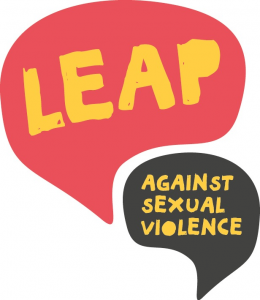 “Life skills, leadership, limitless potential: Supporting children and young people affected by sexual violence in Europe by strengthening and facilitating participatory practice” is a project funded by the Rights, Equality and Citizenship Programme of the European Commission.
“Life skills, leadership, limitless potential: Supporting children and young people affected by sexual violence in Europe by strengthening and facilitating participatory practice” is a project funded by the Rights, Equality and Citizenship Programme of the European Commission.
This 24 month project which will run from November 2015 – November 2017 is being coordinated by the International Centre: Researching Child Sexual Exploitation, Violence and Trafficking (IC) at the University of Bedfordshire in the UK and is implemented in partnership with Barnardos SECOS (UK), Terre des Hommes (Romania), PULSE Foundation (Bulgaria), Stichting Alexander (Netherlands), Terre des Hommes Regional Office for South East Europe and in association with EuroChild.
The project’s main aims are:
- to build the capacity of specialist support services to develop safe, ethical, participatory practice with young people affected by sexual violence
- to empower and enable children and young people affected by sexual violence to develop knowledge, skills and capacities through a life skills and leadership programme and through developing their own youth-led prevention activities.
The objectives of the project are to:
- develop an evidence-based training program for sexual violence specialist support services to promote participatory practice with children and young people affected by sexual violence
- build capacity and sustainable professional support networks to promote participatory rights-based approaches to supporting children and young people affected by sexual violence
- develop a life skills and leadership toolkit for children and young people affected by sexual violence and train Youth Facilitators to co-deliver the toolkit with Country Partner Staff
- enable children and young people affected by sexual violence to develop their knowledge, skills and capacities
- support child and youth-led projects which will enable children and young people to share their views through creative tools such as film and art which will help protect other children and young people and challenge stigma
- build the evidence-base on how to support and involve this group in advocacy through research and evaluation
- facilitate European knowledge exchange through the dissemination of freely accessible tools and resources
Each of the four implementing country partners (Barnardos SECOS in the UK, Terre des Hommes in Romania, PULSE Foundation in Bulgaria and Stichting Alexander in the Netherlands) will establish a Country Advisory Group which will provide advice on the direction of the activities in country, ensuring that children and young people are involved safely and ethically and that plans are implemented in line with the original project description.
In addition to the Country Advisory Groups, each country partner will also establish a Local Advisory Committee, whose main role will be to ensure accountability, to advise on the development of the life skills and leadership programme and to help the children and young people who will be developing their own projects by providing inputs and acting as a ‘test audience’.
In addition to providing support and advice at the country level, one or two representatives from each Country Advisory Group will be invited to represent the group on the project wide Project Advisory Group which will be coordinated by the International Centre at the University of Bedfordshire.



